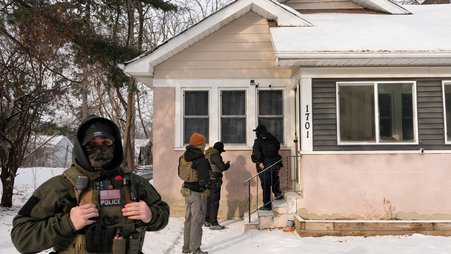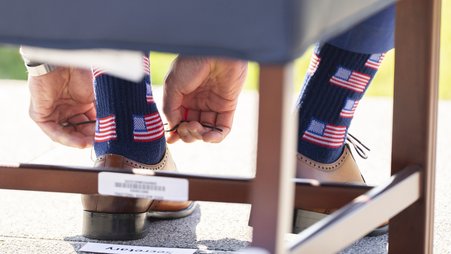A disturbing report in Saturday’s Washington Post describes an FBI investigation of a large number of government officials suspected of leaking classified information to the press, engulfing an unknown group of reporters along the way. The investigation includes data-mining officials’ personal and professional communications to find any contact with journalists. Just to be clear: It seems officials are being targeted for just talking to the press.
While the Obama administration has already shamefully prosecuted more whistleblowers than all other administrations combined, this investigation—given its unprecedented scope and scale—has the potential to permanently chill both press freedom and the public’s right to know.
Last year, the New York Times reported on the computer virus known as Stuxnet that attacked Iran’s nuclear reactors and the broader Top Secret program cyberattack program code named “Olympic Games.” Around the same time, the Associated Press reported on an al-Qaeda double agent who allegedly foiled a terrorist attack. Both stories are subject to investigation.
Unlike other investigations, the FBI is not targeting one or even a few government employees, but is engaged in a wide-ranging fishing expedition. According to the Post’s anonymous source, the investigation engulfs “everybody—at pretty high levels, too. There are many people who’ve been contacted from different agencies.”
The net now seems to be cast over the entire government, and in return, the entire Washington press corp. The Post is reporting the FBI is using new, “sophisticated software to identify names, key words and phrases embedded in e-mails and other communications, including text messages, which could lead them to suspects.”
The surveillance gets even more invasive than that:
The FBI also looks at officials’ phone records — who called whom, when, for how long. Once they have evidence of contact between officials and a particular journalist, investigators can seek a warrant to examine private e-mail accounts and phone records, including text messages, former prosecutors said.
In addition to getting warrants anytime a government official has contact with the unknown number of “particular” journalists, FBI agents have been “confronting” officials when they find this information.
Talking to a reporter is not a crime. Having an association with a national security reporter from the New York Times or the AP should not give the authorities probable cause to spy on officials. To insinuate as such not only inhibits reporters from doing their job and prevents the American people from learning vital information, but is a violation of the government officials’ First Amendment rights.
And the chill on the press is not hypothetical or conjecture. The Times reported on its front page in August, just after the investigation started, that the FBI was “casting a distinct chill over press coverage of national security issues as agencies decline routine interview requests and refuse to provide background briefings.”
Given that government secrecy is at an all time high and the administration’s most controversial programs are conducted under the veil of secrecy, leaks are often the only way the American people can find out what their government is doing in their name. As Glenn Greenwald wrote today, "virtually every significant revelation of the bad acts of the US government over the last decade came from this process." Yet as the Times reported, government sources’ new found unwillingness to talk about national security issues is “striking.” Even government officials are admitting “Americans are learning less about their government’s actions.”
Remember, the House of Representatives held a hearing in July where they openly discussed putting reporters in jail in response to these same stories by the Times and AP. The Washingtonian’s Shane Harris had reported a month earlier that a “senior” Justice Department official “made it clear that reporters who talked to sources about classified information were putting themselves at risk of prosecution.”
And of course, for more than two years, the government has been conducting a grand jury investigation into WikiLeaks for publishing classified information. An indictment and conviction in that case could potentially destroy national security and foreign policy journalism as we know it.
No one is arguing the government shouldn't be able to keep some secrets, but it's clear, as New York Times executive editor Jill Abramson recently said, "no story about details of government secrets has come near to demonstrably hurting the national security in decades and decades."
All of the government's leak investigations and veiled threats to prosecute reporters are an affront to the First Amendment. The Obama administration must halt its war on whistleblowers before it does lasting damage to our constitutional rights.




